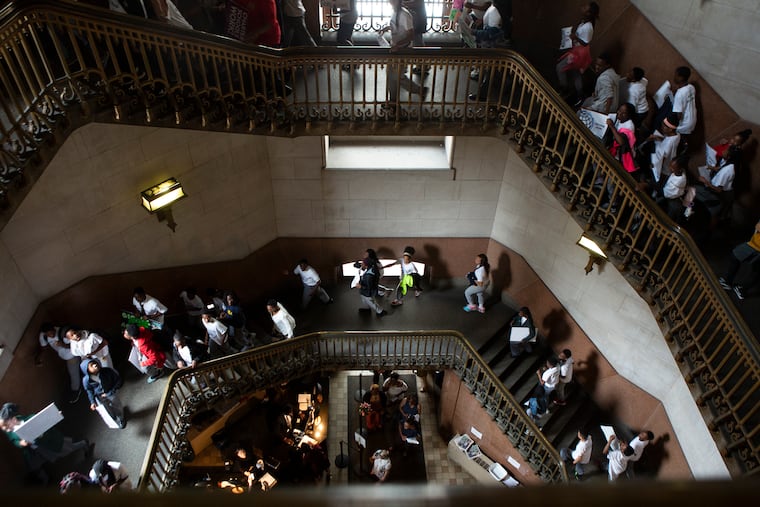School choice is not the source of education’s ills in Philly or elsewhere | Opinion
School systems are unequal, but not because of charters and choice.

In recent policy proposals, both Bernie Sanders and Elizabeth Warren have beat the tired drum of maligning school choice as an enemy of public education, calling, rightly, for the eradication of for-profit charter schools while also calling, shortsightedly, for charter moratoriums or funding divestment.
Leaders in the Keystone State have moved to be tougher on charters as well. Gov. Tom Wolf argued that “Pennsylvania’s charter law is the worst in the nation” and has imposed reforms that would change funding laws for charter schools likely to the detriment of their funding.
Wolf has most sharply critiqued cyber charter schools, a perspective that may indeed have merit. But charter critics like Sanders’ call for a moratorium on all charter schools, eliminating the possibility for their expansion, which seems extreme.
The argument in favor is that charters not only divert funds away from traditional public schools but also exacerbate inequities and segregation within American schools. It is undeniable that America’s education system is socioeconomically and racially stratified and inequitable, and has been so since its founding.
These critiques of charter schools and the choice system they represent go astray, however, in their insinuation that school choice is a primary factor perpetuating the system’s current inequities.
Some anti-choice proponents assert that school choice options, among them charter schools, bring unfairness into the marketplace because not all families benefit from equal access to school choice, be it due to scarcity of seats, access to information about the schools, or academic requirements. Yet to place such realities solely at the feet of choice policies is akin to selecting only the data that support preformulated hypotheses.
All schools, whether traditional public, public charter, parochial, or private, operate in ways that perpetuate inequities and stem from market principles.
School catchment zones for district and charter neighborhood schools greatly impact property values, thus ensuring that desirable zones are accessible solely for families who can afford the rent or mortgage. These so-called public options still operate under market principles that equate scarcity and desirability with cost.
Public magnet schools also thrive on inequitable access by using rigorous application requirements to siphon off students deemed unworthy of enrollment, incentivizing families to pay for test prep sessions and so further reinforcing inequities.
» READ MORE: The Ben Franklin and SLA asbestos crisis is a symptom of a bigger disease | Opinion
Even for nonmagnet, open lottery district schools, the application process is difficult to navigate for even the most privileged families, let alone those living in poverty and/or families with English as a second language.
Ironically, ease of access has seen arguably the greatest strides in the Philadelphia charter sector with the rollout of Apply Philly Charter, a one-stop-shop for families interested in charter schools, like a Common App for college applications. A family that is trying to cast a wide net for their child’s education by applying to several charter schools can now, instead of having to complete an application for each school, fill out one application that will be sent to multiple charter schools at once — a major step forward toward easing access.
Most presumptuously, some anti-choice advocates have urged parents to avoid exercising their right to choice by automatically opting into their neighborhood district schools, for fear that choosing any other school would endanger the district’s viability.
This is the height of hubris and violates what ought to be a core community principle: do not begrudge what a parent chooses for their children so long as they do not limit the same choices for others.
Families choosing a school that is the best fit for their kids should not be burdened with the added responsibility of leaving a different particular school system at a disadvantage. It is precisely the responsibility of the school to provide services adequate enough for the family to choose to enroll their child.
Choice critics are correct to point out that our nation’s school systems favor the rich, privileged, and white.
But laying the blame on school choice policies is sorely misguided, even disingenuous.
Zach Wright is a former Philadelphia teacher of the year, communications activist for Education Post, and assistant professor at the Relay Graduate School of Education supporting teachers in Philadelphia and Camden.